|

EVANGELISM SUNDAY
CULTURAL RESOURCES
Sunday, August 18, 2013
Kevin W. Cosby, Guest Cultural Resource Commentator
Senior Pastor, St. Stephen Church, Louisville, KY
I. Historical Influences
It is an ironic turn of events that the Black Church, established under the protective cloak of hidden codes in song, is today met with the challenge of attracting people to the gospel message.
The religion of the enslaved was both visible and invisible, formally organized and spontaneously adapted. Regular Sunday worship in the local church was paralleled by illicit, or at least informal, prayer meetings on weeknights in the slave cabins. Preachers licensed by the church and hired by the masters were supplemented by enslaved preachers licensed only by the spirit. Texts from the Bible, which most enslaved could not read, were explicated by verses from the spirituals. The enslaved, forbidden by masters to attend church or, in some cases, even to pray, risked floggings to attend secret gatherings to worship God.1
The Black Church as an Invisible Institution emerged as enslaved blacks were motivated to hold their own religious meetings out of disgust for the vitiated gospel preached by their masters' preachers. Lucretia Alexander explained what slaves did when they grew tired of the white folks' preacher: "The preacher came and . . . he'd just say, 'Serve your masters. Don't steal your master's turkey. Don't steal your master's chickens. Don't steal your master's hawgs. Don't steal your master's meat. Do whatsomever your master tells you to do.' Same old thing all the time. . . . Sometimes they would . . . want a real meetin' with some real preachin' . . . . They used to sing their songs in a whisper and pray in a whisper."2
Steal Away
Steal away, steal away,
Steal away to Jesus.
Steal away, steal away home,
I ain't got long to stay here.
Green trees are bending.
Sinners stand a-trembling.
The trumpet sounds within my soul.
I haven't got long to stay here.
Couldn't Hear Nobody Pray
And I couldn't hear nobody pray
Couldn't hear nobody pray
O way down yonder by myself
And I couldn't hear nobody pray
Shaping evangelism for the contemporary Black Church is a new millennium challenge. The historical Black Church has had the luxury of a built-in audience. Church was the place where decent folks went, fellowshipped, socialized, and reared their children. It's no coincidence that so many of our great R&B singers emerged from the Black Church. For our people, the Black Church was the place of discovery for every aspiring black "American Idol." Church was the platform that launched performers like Aretha Franklin and Whitney Houston to stardom. At fellowship meals we trained our Julia Childs and Rachel Rays. It was among the junior deacons that we discovered "The Apprentice" or two who seemed destined for greatness. On Easter morning or at auxiliaries/church group-led fashion shows, we witnessed a Next Top Model or two as young ladies strutted in their creative ensembles.
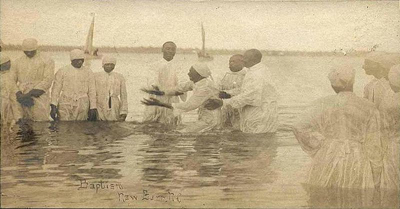
"Wade in the Water." Postcard of a river baptism in New Bern, North Carolina, around 1900.
The plain truth is that in the earlier days of the Black Church, African Americans had no place else to go. There were no golf courses open to consume our Sunday mornings. There were no weekend resorts with their doors open to people of color. There were no fancy hotels with Sunday brunch that would welcome our patronage. So, we went to church. The Black Church now has competition due to desegregation of public places and an expanded African American middle class.
II. Cultural Considerations
Evangelism targeted to African Americans requires an understanding of how we reach black people with the gospel and why we are moved to receive Jesus' gift of salvation upon hearing the gospel or seeing it in action. At heart is the question, "What does it mean to be saved?" as Paul wrote to the Romans. For one culture, it has meant salvation from eternal hell, while for another it has meant salvation from hell on earth.
The evangelistic thrust of the majority culture has had a particular focus on the message that one must accept Jesus Christ as Lord and Savior for the sole purpose of avoiding punishment. Life is good for the majority culture; therefore, one coming from that culture would not want to lose those privileges to an eternity of damnation, hell, fire, and brimstone.
Conversely, it is difficult for people already trapped in a living hell to be sufficiently motivated on avoiding punishment. Our people have known the physical pain of the master's whip. We have felt the sting of the master's degrading tongue. We have been burned by the far-reaching grasp of the master's prerogative to determine our fate. We have known the dehumanizing effects of separate and unequal treatment under the law. We have known the systemic racist tactics that have given our people heavier prison sentences and substandard education and that have removed our men from the home in order to secure food and shelter for our children, as predicted by the Moynihan Report of 1965.3
Shackled physically and mentally by such real-life traumas, our motivation to enter into an eternal pact with Jesus Christ has been rooted in obtaining reward—an eternity of living as a free person of worth. It is the place where pearly gates open to grant access to streets gold, lined with the many mansions that Jesus promised His Father held in store for believers. It is a promise of an eternal life of reward rather than an endured life of temporal hell.
But it is this promise of eternal reward that caused many blacks to criticize the Christian belief and ridicule the blacks who did believe. Bob Marley challenged black people to "Get Up, Stand Up (for your rights)" on earth rather than being placated by promises of joy and pleasure in the hereafter:
We sick an' tired of-a your ism-skism game—
Dyin' 'n' goin' to heaven in-a Jesus' name, Lord.
We know when we understand:
Almighty God is a living man.4
In this contemporary age of pyrotechnics and mind-blowing special effects on the big screen and on the PlayStation3, the Black Church is challenged to reach people who have been numbed to the God of special effects.
III. Evangelism as Outreach
The popularity of Jesus' earthly ministry can be attributed to his concern for reaching out to those in need, by healing those whose conditions were beyond the limited medical knowledge of his day, helping the hurting, restoring the outcast back into the fold, giving hope to the hopeless and showing a life beyond the limitations of laws. That's how Jesus reached out to those who needed help.
Addressing our evangelistic calling as the Body of Christ now poses a major challenge. Modern society has encouraged us to be concerned only for ourselves and our own or our kin and kind. The problem is that our faith challenges us to care about those beyond our circle of comfort. Jesus not only challenges us to care about the anonymous them, but also to do something about the problems they face.
Making the gospel relevant and redemptive to a new generation has never been easy, but the formula has always been the same: focus on meeting their needs and you will reach people. An elderly Jewish friend of mine often reflected that Christianity flourished because Jesus' message gave women freedom to be equal children of God. Look at what that has done for the Church!
The success of the early Black Church suggests that it emulated the model of Jesus Christ: Meet their needs and you will reach people. But the overwhelming needs in our communities today very often leave us responding as Peter did when Jesus suggested that they feed the congregation of over 5,000 (Mark 6:30-44). In essence, Peter asked Jesus if he was thinking clearly, asking 12 average wage-earners to feed more than 5,000.
As the Black Church emerged and grew into the niche carved for it by Reconstruction, Jim Crow, and the Great Depression, the focus was on meeting needs, and those needs were very often met in miraculous ways. Literacy was a great need post-slavery. Then on to higher education, economic empowerment, and equal rights under the law.
IV. Songs That Speak to the Moment
The shift in the focus of the Black Church is evidenced in our music. Few songs emerge today touting the need for service to God; rather, we have concentrated our efforts on what God can do for us. As parishioners come before God to see what they can get, how do we redirect their spiritual energy to seek the lost (broadly defined as those who cannot find their way in life, not simply those who have not confessed Jesus as Lord and Savior)?
One of the most enduring ironies of the Black Church is the popularity of "Amazing Grace," which was written by notorious slave trader John Newton. The song juxtaposes the overwhelming grace extended by a loving God to lowly humanity. Sometimes it is difficult for us to comprehend the all-encompassing love of God—a love that calls to us no matter what we have done. It's still amazing.
Amazing Grace
by John Newton
Amazing grace! How sweet the sound
That saved a wretch like me!
I once was lost, but now am found;
Was blind, but now I see.
'Twas grace that taught my heart to fear,
And grace my fears relieved;
How precious did that grace appear
The hour I first believed!
Through many dangers, toils and snares,
I have already come;
'Tis grace hath brought me safe thus far,
And grace will lead me home.5
People overwhelmed by trying to "make it happen" can be touched and reached by the sentiment expressed in the song "I Surrender All." The notion of turning over all of our worries, our needs, our cares, and our very lives to a higher power can provide relief to weary souls.
I Surrender All
by Judson W. Van De Venter
All to Jesus, I surrender;
All to Him I freely give;
I will ever love and trust Him,
In His presence daily live.
Refrain
I surrender all, I surrender all,
All to Thee, my blessed Savior,
I surrender all.6
A simple chorus of this song can appeal to those who feel as though they are just one who has no significance to the Kingdom of God. For a person feeling alone in a worship service of dozens, perhaps hundreds or thousands, and especially in a world of millions, there can be comfort in knowing that one more still counts.
There's Room at the Cross for You
by Ira Stamphill
There's room at the cross for you
There's room at the cross for you
Though millions have come, there's still room for one
Yes there's room at the cross for you.7
A publishing company was revising their standard hymnal and had enlisted the aid of a committee to help with the selection process. One committee member challenged the theological accuracy of Fanny Crosby's "Pass Me Not O Gentle Savior." His argument was that it is not in the nature of Christ to pass us by. Another committee member explained that oppressed people who have been passed by at every turn need the reassurance of calling out to their Savior, "Please don't you pass me by as the world has done."
Pass Me Not, O Gentle Savior
by Fanny J. Crosby
Pass me not, O gentle Savior,
Hear my humble cry;
While on others Thou art calling,
Do not pass me by.
Refrain:
Savior, Savior,
Hear my humble cry,
While on others Thou art calling,
Do not pass me by.
Let me at Thy throne of mercy
Find a sweet relief;
Kneeling there in deep contrition,
Help my unbelief.
Refrain
Trusting only in Thy merit,
Would I seek Thy face;
Heal my wounded, broken spirit,
Save me by Thy grace.
Refrain
Thou the spring of all my comfort,
More than life to me,
Whom have I on earth beside Thee,
Whom in Heav'n but Thee.
Refrain.8
V. Stories and Illustrations
The Call to Evangelize
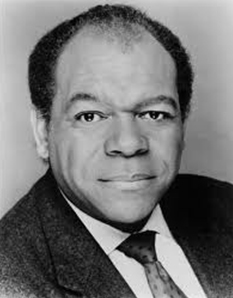 Tom Skinner molded a generation of black evangelical leaders through a ministry that began in the mid-1960s with evangelistic crusades in New York City's Harlem, where he grew up. He had opportunities to speak to and influence countless individuals, groups, and organizations, ranging from members of Congress to the New York Yankees to officials at IBM Corporation. He also served as chaplain for the Washington Redskins of the National Football League.
Tom Skinner molded a generation of black evangelical leaders through a ministry that began in the mid-1960s with evangelistic crusades in New York City's Harlem, where he grew up. He had opportunities to speak to and influence countless individuals, groups, and organizations, ranging from members of Congress to the New York Yankees to officials at IBM Corporation. He also served as chaplain for the Washington Redskins of the National Football League.
His move toward an evangelistic ministry and his ultimate success in that arena demonstrates the importance of relationships in evangelism among African Americans. Rarely are we inspired or converted to life in Christ by reading a gospel tract.
The son of a minister, religion was a part of Skinner's life from birth, but growing up in inner-city New York gave Christianity little credibility. "As a teenager I looked around and I asked my father where God was in all this," he wrote. "I couldn't for the life of me see how God, if He cared for humanity at all, could allow the conditions that existed in Harlem."9
Skinner grew to believe that Christianity was the religion of the American white man, especially since every image of Christ he had seen depicted "an Anglo-Saxon, middle-class, Protestant Republican," he remarked. "There is no way that I can relate to that kind of Christ. … He doesn't look like he could survive in my neighborhood."10
Skinner led a double life as a teen. By day he was president of his high school student body, a member of the basketball team, president of the Shakespearean Club, and an active member of his church's youth department. At night fell, Skinner could be found among the Harlem Lords, a notorious street gang. Under Skinner's leadership, the Lords rioted, looted, robbed, and assaulted other gangs for turf and respect.
Leaving a street gang was tricky business. Few had voluntarily left the Harlem Lords without losing their lives. Skinner went to his 129 gang members to announce that he had accepted Christ into his life and that he could no longer be a member of the Harlem Lords. Not one sound came from the bewildered gang. Skinner turned to leave the room.
To his astonishment, Skinner left the room free and unharmed. Later, the gang member who had been Skinner's second-in-command told him that he wanted to kill him that night but that a strange force prevented him. Skinner went on to lead that young man and several other members of the Harlem Lords to faith in Christ. That marked beginnings of the Harlem evangelist.
Like a street-smart apostle Paul, Skinner began preaching on the streets of Harlem to a ready-made audience of prostitutes, drug dealers, and homeless people. He also ministered to the youth of Harlem, particularly gang members. He spoke at neighborhood churches and became a respected figure in the community. Soon Skinner teamed with a group of 12 young, influential church and community leaders in Harlem to form the Harlem Evangelistic Association (HEA), an organized effort to reach the inner city with the gospel.
Though the first effort produced mixed results, Skinner was undeterred in his call to evangelize. Some years later, he formed Tom Skinner Associates. Skinner died of Leukemia in 1994, but for the last nine years of his life, through the Tom Skinner Associates Learning Center, Skinner worked with poor inner-city youth in Newark, New Jersey, seeking to mature them spiritually while providing technical expertise that could lead toward a professional career.
The St. Stephen Testimony
The explosive growth of St. Stephen Church, where I pastor, came through tried and tested methods of Bible study, specifically Sunday school coupled with ministries that meet needs. The first Sunday we launched or Growth-Oriented Sunday school (GOSS) was on my pastoral anniversary. I asked church members to give me the "gift" of attending Sunday school on that day. This was the genesis of our intentional outreach ministry through Bible study.
Sunday morning Bible study is not the traditional way African American churches evangelize and grow. Most African American churches tend to be worship centers. We took the Sunday school model for evangelism and outreach, which is multiplying through small groups, having an exciting curriculum, and helping people develop relationships. Excited people went back and told their friends, "You need to come to St. Stephen." Excited people kept winning other excited people, and the church just grew exponentially. When I became pastor of St. Stephen, there were about 300 members. Today there are more than 14,000.
Beyond Bible study, our outreach efforts, like those of the early black church, have extended to social justice issues, economic development and empowerment, recovery from substance abuse, and education. Our willingness to step out and advocate for the voiceless has earned St. Stephen a reputation as a church that cares about people. Our annual community festival, where we invite Old School R&B groups like the Temptations and the Four Tops, has attracted members who had never gone to church before.
Evangelism Through Hip Hop Worship
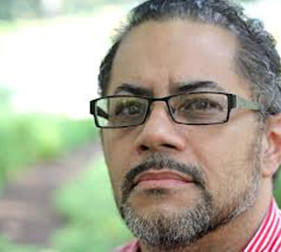 Pastor Phil Jackson, associate pastor of Lawndale Community Church on Chicago's west side, and pastor of The House Covenant Church, knows what it feels like to be lost, searching for life direction. His own life journey inspired him to start a hip-hop church that reaches hundreds of Chicago youth.
The House is an evangelical Christian church targeted to young adults through hip-hop culture. Stemming from his own personal battles with the temptations of street life at an early age, Jackson strives to create an environment that lets teens connect their everyday lives to biblical teachings.
Pastor Phil Jackson, associate pastor of Lawndale Community Church on Chicago's west side, and pastor of The House Covenant Church, knows what it feels like to be lost, searching for life direction. His own life journey inspired him to start a hip-hop church that reaches hundreds of Chicago youth.
The House is an evangelical Christian church targeted to young adults through hip-hop culture. Stemming from his own personal battles with the temptations of street life at an early age, Jackson strives to create an environment that lets teens connect their everyday lives to biblical teachings.
"We don't believe in Christian music, we believe in Christian lyrics," says Jackson.11
The Kansas City, Missouri, native joined church at age 12 and maintained a relationship with church even through college, but he felt that there was always something missing from his Sunday worship. "I needed a connecting point to bridge what that experience was on a Sunday to everyday life."12
Even as a professed Christian, the temptations of worldly gain were a powerful draw. "I just got involved in some gang stuff, selling drugs, fighting, "Jackson recalled. "My identity was formed from that, but really I was hiding who I was."13 After struggling to find a balance between his spiritual life and his personal life, Jackson, at 23, began changing his life for the better.
In October 2003, Jackson helped start The House Covenant Church. The youth-oriented church conducts services on the first and second Saturday nights of each month and goes to youth prisons on the third and fourth Saturdays of the month.
Jackson said that the church is a place of safety and refuge from trouble that many young adults in the community could otherwise get involved in on Saturday nights. When students join the church, instead of becoming "members," they are "partners," emphasizing the joint venture between the church and its young people.14
Youth may be attracted to the phenomenon of hip hop worship, championed by Chicago pastor Phil Jackson. His ministry offers the gospel appeal without the traditional church barriers that have alienated or intimidated many.
VI. Audio Visual Resources
Black Church Plays
Consider using one-scene short plays during revivals, community outreach campaigns, and soul-winning campaigns. Online location:
http://www.blackchurchplays.com/scart/SubCategories.asp?ProductName=Evangelism
Videos
Church Invite 2
This two-minute video 
can help parishioners understand the impact of asking someone they know to attend church. This concept of relational evangelism supports the cultural tendency to respond to a personal invitation or request rather than an anonymous appeal. Online location:
http://www.sermoncentral.com/church-media-preaching-sermons/sermon-video-illustrations/church-invite-2-12-detail.asp
Why Hip Hop?
See a video of young people explaining the need to evangelize the Hip Hop Generation, from The House Covenant "Hip Hop" Church, Rev. Phil Jackson, pastor, in West Chicago (www.thahouse.org).
Books
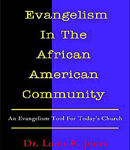
|
Jones, Dr. Louis R. Evangelism in the African American Community: An Evangelism Tool for Today's Church. Bloomington, IN: iUniverse, Inc., 2003. |
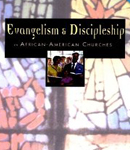
|
June, Lee N. and Matthew Parker. Evangelism and Discipleship in the African American Church. Grand Rapids, MI: Zondervan Books, 1999. |
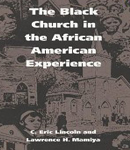
|
Lincoln, C. Eric., and Lawrence H. Mamiya. The Black Church in the African American Experience. Durham, NC: Duke University Press Books, 1990. |
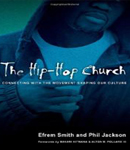
|
Smith, Efrem and Phil Jackson. The Hip-Hop Church: Connecting with the Movement Shaping Our Culture. Downers Grove, IL: InterVarsity Press, 2005. |
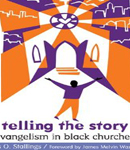
|
Stallings, James O. Telling the Story: Evangelism in Black Churches. Valley Forge, PA: Judson Press, 1988. |
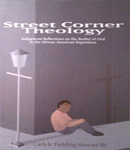
|
Stewart, Carlyle Fielding, III. Street Corner Theology: Indigenous Reflections on the Realities of God in the African American Experience. Nashville, TN: Winston-Derek Publishers, 1995. |
Notes
1. Albert J. Raboteau. "The Secret Religion of the Slaves." ChristianHistory.net. Online location: http://www.christianitytoday.com/ch/1992/issue33/3342.html
2. Ibid.
3. The Negro Family: The Case for National Action (a/k/a The Moynihan Report), Office of Planning and Research, United States Department of Labor. March 1965.
4. "Get Up, Stand Up" by Bob Marley. Online location:
http://www.azlyrics.com/lyrics/bobmarley/getupstandup.html
5. Amazing Grace." By John Newton (Meter version). African American Heritage Hymnal. Chicago, IL: GIA Publications, 2001. #272
6. "I Surrender All." By Judson W. Van De Venter. African American Heritage Hymnal. #396
7. "There's Room at the Cross for You." By Ira Stamphill. African American Heritage Hymnal. #245.
8. "Pass Me Not, O Gentle Savior." By Fanny J. Crosby. African American Heritage Hymnal. #435
9. "The Unrepeatable Tom Skinner," by James Earl Massey. Online location: http://www.christianitytoday.com/ct/1994/september12/4ta011.html. See also "Leukemia Claims Evangelist Tom Skinner." Online location:http://www.christianitytoday.com/ct/1994/july18/4t8051.html; and "A Prophet Out of Harlem: Willing to tell the hard truth, evangelist Tom Skinner inspired a generation of leaders" by Edward Gilbreath. Online location:
http://www.christianitytoday.com/ct/1996/september16/6ta036.html.
10. Ibid.
11. "Pastor brings community youth to church, through hip-hop," By Tiffany Teasley, June 5, 2007. Online location: http://news.medill.northwestern.edu/chicago/news.aspx?id=37771.
12. Ibid.
13. Ibid.
14. Ibid.
| 
